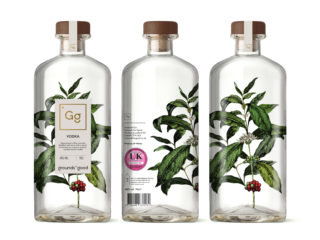Marketing Decaf Coffee
Get exclusive updates from CoffeeCode right in your inbox
Decaf Coffee Is An Opportunity
Decaf coffee is a hot product.
The decaf coffee market is currently worth $23 billion and is projected to grow to $37 billion by 2025. This presents a huge opportunity for coffee brands looking to tap into a growing market.
According to a report by Allied Market Research, the at-home market for decaf coffee was worth $11.6 billion in 2021, a significant increase from the market value in 2020, $8.4 billion. The report attributes the growth to the continued popularity of coffee among consumers and the increased availability of decaf coffee beans and grounds.
The decaf coffee market is composed chiefly of three products:
- Beans
- Ground coffee
- Instant coffee
The pandemic has led to a surge in at-home coffee consumption. Many people are working from home and drinking decaf coffee; experts predict the at-home market will continue to grow in the coming years.
Consumers worldwide are showing a growing interest in decaf coffee.
Three countries – the United States, Canada, and the United Kingdom – contain consumers with a solid interest in decaf coffee, setting these markets apart.
Creating an effective marketing strategy for your decaf coffee requires understanding your market segment.
Decaf customers want specific solutions that differentiate them from other coffee drinkers. Younger coffee consumers (e.g., Gen Z, Millennials) increasingly turn to decaf coffee for health and wellness benefits, as they actively try to reduce caffeine intake.
If your coffee brand isn’t acting on this opportunity – you’re missing out. This article gives you insights about marketing decaf coffee so you can take advantage of this opportunity.
Marketing Decaf Coffee
Product
Decaf coffee has between 2-7mg of caffeine per 8oz (235ml) cup, differentiating it from regular coffee, which contains between 70-140mg per 8oz cup. This is a significant product difference between decaf and regular coffee, of which consumers are increasingly aware.
Consumers’ interest in educating themselves about the caffeine content in coffee, decaf, and caffeine-free products is reflected in their online behaviour. For example, “How much caffeine is in decaf coffee?” is searched 8.6K times per month globally in search engines, such as Google.
Brands can take advantage of consumers educating themselves on coffee products by building a content marketing strategy catering to these queries. Strategic use of content (e.g., blogs, videos, podcasts) allows coffee retailers to expose their products to potential customers and remain part of the consideration set.
Consumers are not equally interested in all decaf products, and successful coffee brands adjust their product lines accordingly. Currently, decaf coffee beans are of most interest to consumers, followed by instant decaf coffee. Pre-ground decaf coffee, a downmarket product, may be less attractive to such coffee drinkers.
Price
Decaf coffee is a premium product and should, generally, be priced as such.
Decaf coffee is typically more expensive than regular coffee; the price per pound ranges from $1 to $4 more. The higher price point of decaf coffee is partly due to the added cost and complexity of the decaffeination process.
Prices also vary between decaf coffee products. Factors that influence this price variation include:
- Brand (e.g. strong coffee brands can command a higher price premium)
- Type of coffee bean (e.g., Arabica beans are typically more expensive than Robusta)
- How the coffee is decaffeinated (e.g., coffees decaffeinated using the Swiss Water Process are often pricier than those using chemical solvents)
Coffee brands selling decaf coffee beans or decaf instant coffee may benefit from implementing a premium pricing strategy, by which companies price products higher, positioning products as luxury items.
Premium pricing highlights the coffee products’ perceived value rather than the actual cost. This strategy allows specialty coffee brands to premiumize their decaf coffee beans and instant coffee products. Coffee brands implementing this pricing strategy often strengthen their positioning with marketing tactics like influencer marketing.
Coffee brands selling pre-ground decaf coffee may experiment with competitive or cost-plus pricing. Competitive pricing references the current market rate for a company’s product, while cost-plus pricing considers the cost of goods sold (COGS), including the product, freight, and packaging.
Place
Most buyers purchase their decaf coffee from supermarkets (e.g., Walmart, Costco), local roasters and cafes, or online.
Supermarkets
Supermarkets offer customers a wide range of product selection, leading to crowded product placement for coffee brands’ products. Decaf coffee is often placed beside regular coffee, increasing the chance of the product blending in with a barrage of other choices.
Roasters and Cafes
Roasters and cafes are well positioned to sell decaf coffee products.
Consumers may be more inclined to believe products offered by coffee roasters and cafes to be premium. For example, a local coffee roaster that sells decaf coffee is likely to have its product viewed as a premium specialty product because it’s close to the product’s creation.
This general perception creates unique opportunities in digital marketing for cafes, for example, short-form videos (e.g., TikTok videos) showing the roasting process.
Product experience is an essential aspect of coffee shop branding. Roasters and cafes can improve their product experience in two ways by using coffee packaging effectively and creating a great sensory experience.
By learning from the best coffee packaging, roasters and cafes can make their own unique spin on effective packaging and branding coffee. Creating a great sensory experience can be achieved by offering high-quality decaf beans and catering to coffee trends like flavoured beans.
Online
Your Website
The best coffee websites create a powerful sales platform to help you sell more coffee and grow your business.
A website offers four main benefits:
- Reach: It allows you to reach a wider audience than you could through brick-and-mortar stores alone.
- Sales: A website allows potential customers to learn about your coffee, see your product offerings, and place orders.
- Deeper customer relationships: A website enables you to build customer relationships through blog posts and email marketing (e.g., replicate the tactics the best coffee newsletters use to drive sales).
- Differentiation: Your website is one of the greatest branding opportunities you have. By creating a cohesive look and feel on your website and educating potential customers on what makes you different and better than alternatives, you can differentiate your coffee brand and products in the market.
Other Websites
Amazon
Amazon is one of the most popular websites.
There are four reasons coffee brands may choose to sell decaf products on Amazon:
- User-base size: Amazon has a massive customer base, meaning many potential customers can discover your coffee.
- Convenience: Customers can easily search for and purchase coffee on Amazon, leading to more sales.
- Visibility: Amazon offers several features to boost your product’s visibility. For example, Amazon’s keyword-targeting feature ensures your coffee appears in searches for relevant keywords.
- Trust: Amazon’s review system builds trust with potential customers.
Etsy
Etsy is a marketplace for handmade and vintage items, and there’s a growing demand for specialty coffee.
Four reasons coffee brands may sell and market their decaf products on Etsy:
- Audience alignment: Etsy offers access to an audience of potential customers who appreciate the craftsmanship and quality that goes into every cup of coffee.
- User base size: Etsy has millions of active users, which may represent a large potential customer base for your decaf coffee.
- User-friendly: It’s easy to set up an Etsy shop; you can create a professional-looking shop in just a few minutes. This makes it an ideal platform for small businesses or those just starting.
- Flexibility: Etsy offers flexible shipping and payment options so that you can cater to different customer needs and preferences. You can offer free shipping, flat-rate shipping, or even local pickup.
Promotion
There are several reasons to promote decaf coffee, three of which are:
- Decaf coffee is a great way to enjoy coffee’s flavour without caffeine’s adverse effects (e.g., jitters, anxiety, and sleeplessness).
- Decaf coffee is a good choice for people who are sensitive to caffeine or want to limit their caffeine intake.
- Decaf coffee competes with fewer substitute products than regular coffee (e.g., decaf coffee competes with herbal tea)
Given the benefits of decaf, it makes sense to promote decaf coffee to a broader audience.
Coffee brands can use four channels and tactics for marketing their decaf products:
- Influencer Marketing
- Reviews
Decaf coffee is an excellent choice for people who want to enjoy the flavour of coffee without the caffeine buzz. However, decaf coffee is less likely to be within a consumer’s consideration set than regular coffee.
Advertising decaf coffee on Facebook can increase product awareness, inserting decaf coffee into the consideration set of more people.
With over 2 billion monthly active users, Facebook offers a broad audience to reach with your advertising.
Facebook also allows you to target your coffee ads specifically to people interested in coffee. For example, you can target ads to people who live in cities and have expressed an interest in coffee.
Careful Facebook targeting ensures that your message reaches those most likely interested in decaf coffee.
While gaining popularity, many people still associate decaf coffee with being weaker or less flavorful than regular coffee. So, decaf coffee can be tricky to market.
Through Instagram, brands can change consumers’ perceptions about decaf coffee. Here are three ways to use Instagram to support marketing decaf coffee:
- Reduce fears: Create and promote content showing customers that decaf coffee can be as rich and flavorful as regular coffee.
- Increase product awareness: Use a combination of hashtags to reach a wider audience of potential customers.
- Entice with aesthetics: Provide consumers with aesthetic photos and videos they have come to expect from coffee Instagram posts to entice them to trust, try and adopt drinking decaf coffee.
Influencer Marketing
Influencer marketing is a tactic for marketing coffee; it involves working with coffee influencers with a large or highly engaged social media following to promote your product. Such influencers may be social media influencers with a strong presence on one or more social media platforms; they may also be authors of coffee blogs (or hosts of coffee podcasts) that consumers trust for product recommendations.
When done correctly, influencer marketing can effectively increase brand awareness and sales of decaf coffee.
Three main reasons coffee brands should consider using influencer marketing to promote their decaf coffee:
- Helps you reach a larger audience.
- Build trust in your products with potential customers.
- Less expensive than other forms of advertising (e.g., television, print ads).
Reviews
Reviews can be beneficial tools to promote decaf coffee.
They provide potential customers with valuable information about your product and can build trust and credibility, driving sales.
Reviews are most effective when they speak from a potential consumer group’s voice. For example, a sophisticated coffee drinker’s review will resonate well with another sophisticated coffee drinker. For coffee brands, this means it’s essential to collect a range of reviews.
Reviews can be a great way to generate word-of-mouth advertising. When people see that others have had positive experiences with your coffee, they’re more likely to try it themselves.
There are many ways to gain reviews, three of which are:
- Request reviews in a post-purchase email sequence.
- Set up your own coffee affiliate program and use the affiliate’s endorsement in your marketing efforts.
- Gift coffee influencers products in exchange for a review on your website or a social media post.




